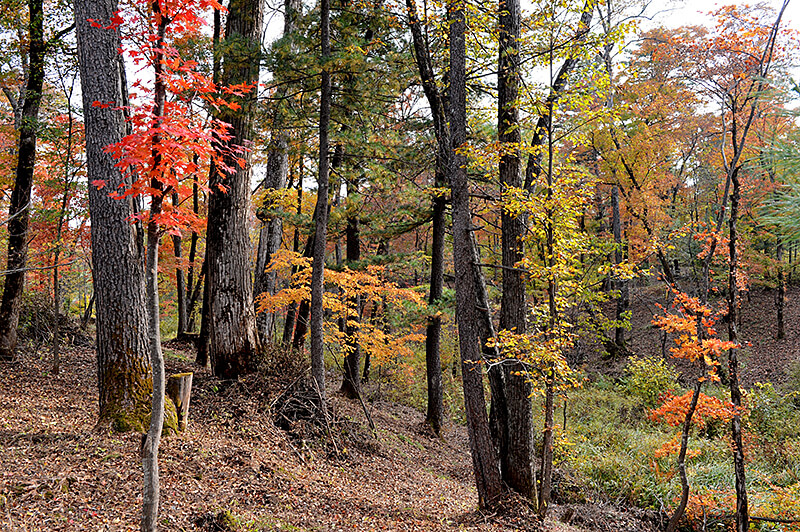Since carbon sequestration is such an important factor for mitigating climate change, it’s critical to understand the efficacy of reforestation efforts and develop solid estimates of forest carbon storage capacity. However, measuring forest properties can be difficult, especially in places that aren’t easily reachable.
Purdue University’s Jingjing Liang, an assistant professor of quantitative forest ecology and co-chair of the Forest Advanced Computing and Artificial Intelligence (FACAI) Laboratory in the Department of Forestry and Natural Resources, led an international team to measure forest carbon capacity in northeast Asia. Their research, which blends remote sensing, field work and machine learning, offers the most up-to-date estimates of carbon capture potential in reclusive North Korea and details the benefits of reforestation efforts over the last two decades in China and South Korea.
“Because there is historically scant data from North Korea, people know little about how much carbon is stored in this region,” said Liang, whose findings were published in the journal Global Change Biology. “Based on the data we can collect from northeast China and South Korea, we used machine learning and big data analysis to estimate how much carbon is stored across the entire region. We mapped for the first time with accuracy the spatial trend of carbon storage in that region of the world.”
China and Korea have worked on reforestation efforts in the region for the last 50 years. Chunyu Zhang, of Beijing Forestry University in China, and Hyun Seok Kim, of Seoul National University, compiled data from hundreds of field plots in their countries to inventory local forest resources. Those data were fused with spatially explicit records of environmental and biological conditions, such as temperature, precipitation, topography and normalized differential vegetation index, and a database from the World Resources Institute that catalogs planted trees across the world, to inform algorithms that can accurately measure forest characteristics and carbon storage capacity.
The findings show that carbon storage in the region has increased by 20%-40% over the last three decades, with up to 76% of that attributable to massive reforestation efforts made across China and the Korean Peninsula. China, for example, has 567,420 square kilometers of new forests (an area larger than Spain) planted over the past two decades, and the country has achieved one of the highest afforestation rates in the world.
Liang added that the area studied comprises about 0.01 percent of forested land in the world, but it has nearly 1% of global carbon storage.
“We show that for a temperate forest biome, proper forest management and reforestation under scientific guidance can restore forests and help them capture more carbon. This can be an effective way to mitigate climate change,” Liang said. “President Trump has pledged to plant billions of trees. If we do it the right way, in a few decades we can greatly improve the carbon storage of our forests as we see in northeast Asia today.”






